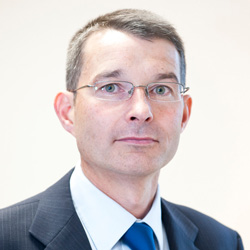 EDF will recruit more than 6,000 people in France in 2013, including 1,700 Bac + 5 (five years of post-baccalaureate study) and above. Amongst the latter, almost 900 will join the nuclear industry in the fields of operation, engineering and R&D. The figures for recruits with Bac +2/3 (two to three years of post-baccalaureate study) are even more impressive, with EDF planning to hire more than 1000 technicians in 2013 in the nuclear sector alone.
EDF will recruit more than 6,000 people in France in 2013, including 1,700 Bac + 5 (five years of post-baccalaureate study) and above. Amongst the latter, almost 900 will join the nuclear industry in the fields of operation, engineering and R&D. The figures for recruits with Bac +2/3 (two to three years of post-baccalaureate study) are even more impressive, with EDF planning to hire more than 1000 technicians in 2013 in the nuclear sector alone. This large-scale recruitment is rooted in the need to replace the baby-boom generation, which began to take retirement two or three years ago and that will continue to around 2020. It also reflects the need for the expertise required to carry out our plans to build new capacities in France and abroad (the EPRs at Flamanville, in China and the UK) and to meet the challenge of extending the life of our plants in complete safety. These are projects that require large financial investment and which are already mobilising the new generation of recruits - and will do so in even greater numbers in the future.
EDF requires a wide range of skills to meet these challenges. Contrary to popular belief, we do not only recruit nuclear specialists such as neutron physicists or safety and radiation protection experts. Whether your training is in civil engineering, mechanics, electricity, industrial IT, automation or instrumentation and control systems (to name just a few areas), you can join EDF to gain access to jobs that are stimulating, carry responsibility and that focus on performance and excellence. These include positions as operating, safety, maintenance and design engineers - first jobs that will give you a suitable training and in which you will quickly acquire technical, managerial or project management expertise.
Olivier Lamarre, assistant director of nuclear power generation.
SUMMARY
- Editorial : Jobs for at least 40 years!
- Preparing for the future of the nuclear industry
- The nuclear industry also needs more general profiles
- Why train engineers in nuclear energy?
- A promising future for professions in the nuclear sector
- Thorium: the green future for nuclear power?
- IFCEN: a project in support of the French nuclear industry
- The importance of materials in the nuclear sector
- First-hand account from Boris Supiot, an engineer at AREVA
- Millennium interview: Nearly 50% of the workforce needs to be replaced





